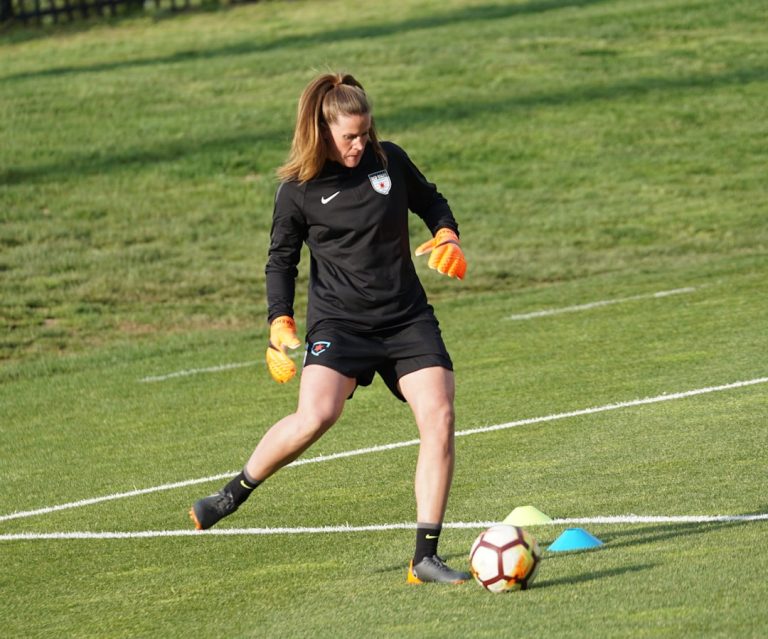Team sports have long been a cornerstone of human interaction, serving not only as a source of entertainment but also as a vital platform for personal development and social cohesion. Engaging in team sports fosters a sense of belonging and community, allowing individuals to connect with others who share similar interests and goals. The collective pursuit of victory or improvement creates an environment where participants can learn valuable life lessons that extend far beyond the playing field.
In an age where individualism often takes precedence, team sports remind us of the power of collaboration and the importance of working together towards a common objective. This shared experience can be transformative, shaping character and instilling values that are essential for success in various aspects of life. Moreover, the significance of team sports transcends mere physical activity; it encompasses a holistic approach to personal growth.
The lessons learned through teamwork, competition, and shared experiences contribute to the development of essential life skills that are applicable in numerous contexts. From childhood through adulthood, the impact of participating in team sports can be profound, influencing everything from career trajectories to interpersonal relationships. As we delve deeper into the myriad benefits of team sports, it becomes evident that they play a crucial role in shaping not only athletes but also well-rounded individuals who are equipped to navigate the complexities of modern life.
Key Takeaways
- Team sports are important for building physical, mental, and emotional skills.
- Camaraderie in team sports fosters relationships and teamwork.
- Team sports help develop leadership skills by taking on responsibilities.
- Communication skills are enhanced through working together and problem-solving in team sports.
- Team sports promote resilience and perseverance in overcoming challenges as a team, leading to better health and well-being.
Building Skills: Physical, Mental, and Emotional
Physical Development
Through rigorous training, athletes improve their strength, endurance, and coordination, which not only enhances their performance on the field but also promotes overall health and fitness. This lifestyle of activity and well-being has long-term benefits that extend beyond the sports arena.
Mental Toughness
As athletes push their limits, they develop discipline, commitment, and strategic thinking. These mental challenges require quick decision-making and adaptability, skills that are valuable in both personal and professional settings.
Emotional Intelligence
Team sports provide a unique environment for individuals to explore their emotions and develop emotional intelligence. Athletes learn to manage stress, cope with disappointment, and celebrate success collectively, teaching them how to navigate complex emotions in a supportive setting. This emotional resilience is crucial in both sports and everyday life, where challenges and setbacks are inevitable.
Camaraderie: Fostering Relationships and Teamwork

One of the most profound benefits of team sports is the camaraderie that develops among participants. The shared experiences of training, competing, and striving for improvement forge strong bonds between teammates. These relationships often extend beyond the confines of the sport itself, creating lasting friendships that can endure for years or even a lifetime.
The sense of belonging that comes from being part of a team fosters an environment where individuals feel valued and supported. This social aspect is particularly important in today’s fast-paced world, where genuine connections can sometimes feel elusive. Team sports provide a structured setting for individuals to engage with one another, promoting social interaction and mutual respect.
Furthermore, the collaborative nature of team sports emphasizes the importance of teamwork. Athletes learn to appreciate the diverse strengths and skills that each member brings to the group, fostering an environment where collaboration is paramount. This understanding translates into effective teamwork both on and off the field, as players learn to rely on one another and work towards common goals.
The ability to function as part of a cohesive unit is a skill that is highly valued in various professional environments, where collaboration often leads to greater innovation and success. By nurturing these relationships through shared experiences in team sports, individuals develop a sense of loyalty and commitment that enhances their ability to work effectively with others throughout their lives.
Leadership Development: Taking on Responsibilities
| Metrics | 2019 | 2020 | 2021 |
|---|---|---|---|
| Number of Leadership Development Programs | 15 | 20 | 25 |
| Percentage of Employees Participating | 10% | 15% | 20% |
| Retention Rate of Employees who Completed Program | 80% | 85% | 90% |
| Percentage of Promotions from Program Graduates | 25% | 30% | 35% |
Team sports serve as an excellent breeding ground for leadership development, providing individuals with opportunities to take on responsibilities and guide their peers. Whether it’s through formal roles such as team captain or informal leadership moments during practice or games, athletes are often called upon to inspire and motivate their teammates. This experience cultivates essential leadership qualities such as decisiveness, accountability, and empathy.
As players navigate the challenges of competition together, they learn how to lead by example, demonstrating the importance of hard work and dedication while encouraging others to strive for excellence. Moreover, the dynamic nature of team sports requires individuals to adapt their leadership styles based on the needs of their teammates and the demands of the situation. This flexibility is crucial in developing effective leaders who can assess circumstances and respond appropriately.
The ability to communicate clearly, delegate tasks, and provide constructive feedback are all skills honed through participation in team sports. As athletes transition into adulthood, these leadership experiences become invaluable assets in their careers, equipping them with the tools necessary to inspire others and drive collective success in various professional settings.
Communication Skills: Working Together and Problem-Solving
Effective communication is at the heart of successful teamwork, and team sports provide an ideal environment for honing these skills. Athletes must learn to convey information quickly and clearly during games, whether it’s calling for the ball or strategizing plays with teammates. This necessity for real-time communication fosters an understanding of both verbal and non-verbal cues, enabling players to develop a keen awareness of their surroundings and the dynamics within their team.
As they practice these skills consistently, athletes become adept at articulating their thoughts and ideas while also being receptive to feedback from others. In addition to enhancing verbal communication skills, team sports also promote problem-solving abilities. Athletes frequently encounter unexpected challenges during games—be it an opponent’s strategy or an injury within the team—that require quick thinking and adaptability.
Collaborating with teammates to devise solutions fosters critical thinking skills that extend beyond the field. Players learn how to analyze situations from multiple perspectives, weigh options, and make informed decisions under pressure. These problem-solving experiences are invaluable in everyday life, equipping individuals with the confidence to tackle challenges head-on while working collaboratively with others.
Resilience and Perseverance: Overcoming Challenges as a Team

The journey through team sports is often fraught with challenges that test both individual resolve and collective strength. Athletes face setbacks such as losses, injuries, or personal struggles that can be disheartening. However, these experiences also present opportunities for growth and resilience.
By navigating adversity together as a team, players learn the importance of perseverance—an essential quality that enables them to bounce back from difficulties stronger than before. This shared journey fosters a sense of unity among teammates as they support one another through tough times, reinforcing the idea that they are not alone in their struggles. Moreover, overcoming challenges as a team cultivates a mindset focused on growth rather than defeat.
Athletes learn to view setbacks as learning experiences rather than insurmountable obstacles. This perspective shift encourages them to embrace challenges with determination and optimism, fostering resilience that extends beyond sports into all areas of life. The ability to face adversity with courage is a powerful lesson that shapes character and instills a sense of grit—qualities that are invaluable in both personal endeavors and professional pursuits.
Health and Well-being: The Physical and Mental Benefits of Team Sports
Engaging in team sports offers significant physical health benefits that contribute to overall well-being. Regular participation promotes cardiovascular fitness, muscle strength, flexibility, and coordination—all essential components of a healthy lifestyle. Additionally, being part of a team encourages individuals to maintain consistent exercise routines while fostering accountability among teammates.
This social aspect can be particularly motivating; knowing that others rely on you can inspire individuals to push themselves further than they might on their own. The physical activity inherent in team sports not only enhances fitness levels but also reduces the risk of chronic diseases such as obesity, diabetes, and heart disease. Beyond physical health benefits, team sports also play a crucial role in mental well-being.
The camaraderie developed among teammates creates a supportive environment where individuals can express themselves freely and build meaningful connections. This social support network is vital for mental health; it helps combat feelings of isolation or anxiety while promoting self-esteem and confidence. Furthermore, engaging in physical activity releases endorphins—natural mood lifters—that contribute to reduced stress levels and improved mental clarity.
As athletes navigate the ups and downs of competition together, they cultivate resilience not only in their bodies but also in their minds, leading to a more balanced approach to life’s challenges. In conclusion, the multifaceted benefits of team sports extend far beyond mere athletic achievement; they encompass personal growth, social connection, leadership development, communication skills, resilience, and overall health. As individuals engage in these collaborative endeavors, they cultivate essential life skills that prepare them for success both on and off the field.
In an increasingly individualistic world, team sports serve as a powerful reminder of the importance of community, cooperation, and shared goals—values that resonate deeply within us all.
If you’re interested in exploring more about the benefits and dynamics of team sports, you might find the article on team sports strategies and their impact on group dynamics quite enlightening. This article delves into how participating in team sports can enhance communication skills, foster a sense of community, and improve overall physical health. It’s a great read for anyone looking to understand the deeper social and psychological benefits of engaging in sports activities as a group.
FAQs
What are team sports?
Team sports are athletic activities that involve a group of individuals working together to achieve a common goal. These sports require cooperation, communication, and coordination among team members.
What are some examples of team sports?
Some examples of team sports include soccer, basketball, football, volleyball, hockey, rugby, and baseball. These sports require players to work together to outscore or outperform the opposing team.
What are the benefits of participating in team sports?
Participating in team sports can have numerous benefits, including improved physical fitness, enhanced social skills, increased teamwork and cooperation, and the development of leadership and communication skills. Team sports also provide opportunities for personal growth and character development.
What are some challenges of participating in team sports?
Some challenges of participating in team sports include dealing with conflicts among teammates, facing pressure to perform well, and managing time commitments for practices and games. Additionally, injuries and physical demands can be challenging aspects of team sports.
How can someone get involved in team sports?
There are various ways to get involved in team sports, including joining a local community league, participating in school sports programs, or joining a recreational team. Many sports organizations and clubs offer opportunities for individuals to join teams and participate in organized competitions.





